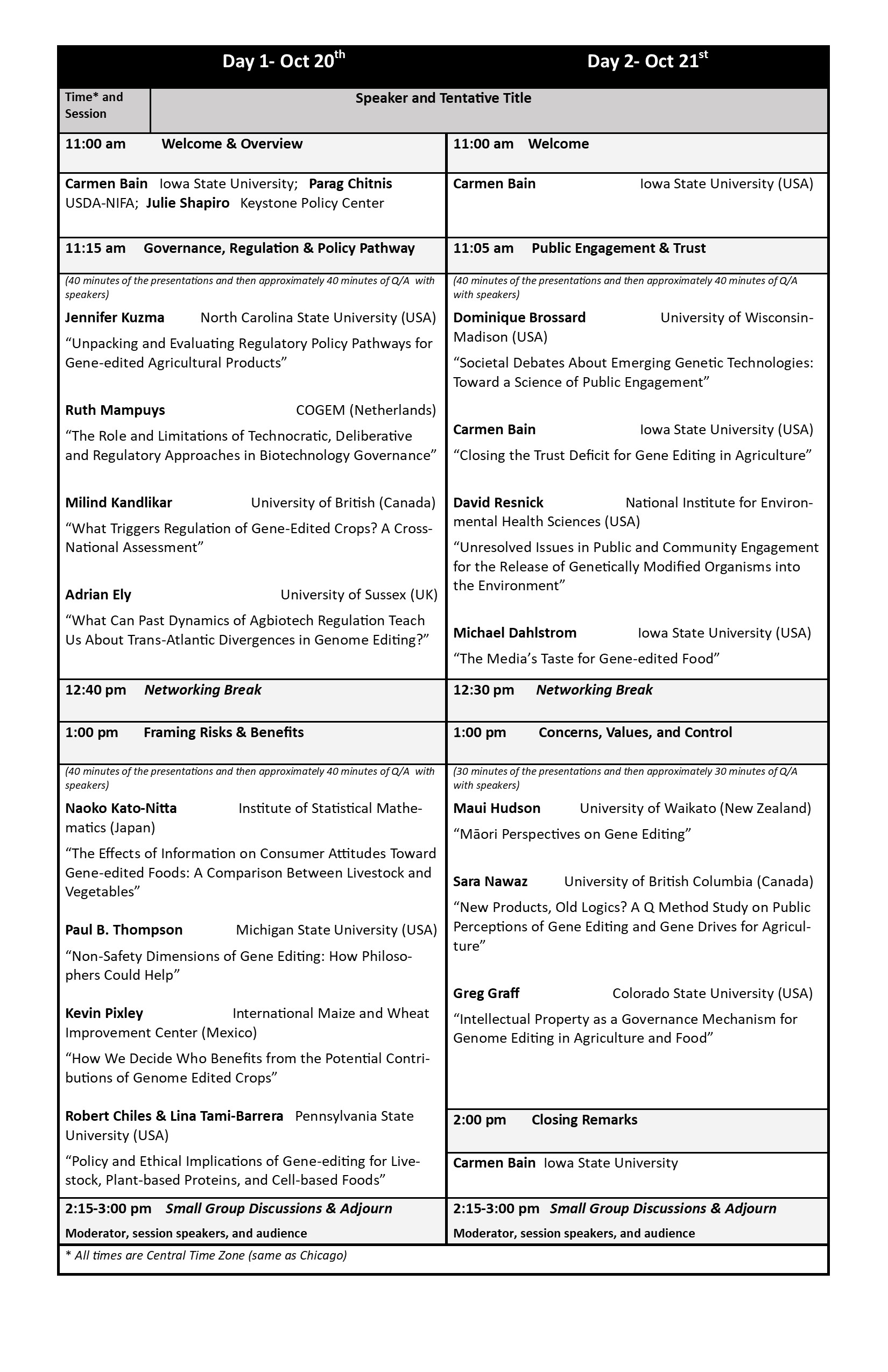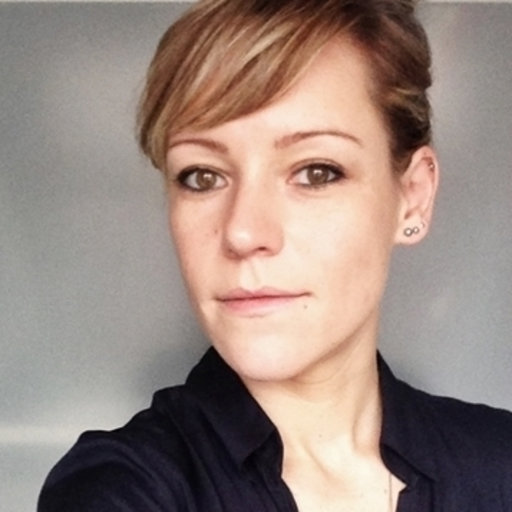21-22 October 2020. Gene Editing in Agriculture and Food: Social Concerns, Public Engagement and Governance
Purpose: Understanding public concerns, values, and trust issues regarding gene editing in agriculture and food is a prerequisite to developing socially responsive policies, regulations, and private governance. This conference will present research and insights from social scientists and other scholars regarding social concerns and public engagement on gene editing in agriculture and food. It will explore the interrelationship of governance and engagement, identifying key considerations, responsibilities and opportunities.
This meeting is organized by Iowa State University with assistance from the State University of New York College of Environment Science and Forestry and the Keystone Policy Center. It is made possible through funding by United States Department of Agriculture-National Institute of Food and Agriculture.Speakers
- Carmen Bain - Associate Dean and Professor, Department of Sociology - Iowa State University (USA) - “Closing the Trust Deficit for Gene Editing in Agriculture”
- Robert Chiles - Assistant Professor and Research Associate, Department of Agricultural Economics, Sociology, and Education - Pennsylvania State University (USA) - “Same Difference? The Ethics of Gene-editing for Conventional, Plant-based, and Cell-based Meat Products”
- Māui Hudson - Associate Professor & Senior Research Fellow, Māori and Indigenous Studies - University of Waikato (New Zealand) - “Māori Perspectives on Gene Editing”
- Gregory Graff - Professor, Department of Agricultural and Resource Economics - Colorado State University (USA) “Intellectual Property as a Governance Mechanism for Genome Editing in Agriculture and Food”
- Naoko Kato-Nitta - Assistant Professor, Department of Statistical Data Science, The Institute of Statistical Mathematics (Japan) - “The Effects of Information on Consumer Attitudes Toward Gene-edited Foods: A Comparison Between Livestock and Vegetables”
- Milind Kandlikar - Director and Professor, Institute for Resources, Environment and Sustainability and Professor, School of Public Policy and Global Affairs - The University of British Columbia (Canada) - “What Triggers Regulation of Gene-Edited Crops? A Cross-National Assessment”
- Jennifer Kuzma - Professor and Director of Genetic Engineering and Society Center (GESC) - North Carolina State University (USA) - “Unpacking and Evaluating Regulatory Policy Pathways for Gene-edited Agricultural Products”
- Ruth Mampuys - PhD candidate and Coordinator on Ethics and Societal Aspects - The Netherlands Commission on Genetic Modification (COGEM, The Netherlands) - “The Role and Limitations of Technocratic, Deliberative and Regulatory Approaches in Biotechnology Governance”
- Sara Nawaz - PhD Candidate, Institute for Resources, Environment and Sustainability - University of British Columbia (Canada) - “New Products, Old Logics? A Q Method Study on Public Perceptions of Gene Editing and Gene Drives for Agriculture”
- Kevin Pixley - Genetic Resources Program Director - International Maize and Wheat Improvement Center – CIMMYT (Mexico) - “How We Decide Who Benefits from the Potential Contributions of Genome Edited Crops”
- David Resnik - Bioethicist - National Institute for Environmental Health Sciences (USA) - “Unresolved Issues in Public and Community Engagement for the Release of Genetically Modified Organisms into the Environment”
- Paul B. Thompson - Professor and Chair, Department of Philosophy - Michigan State University (USA) - “Non-Safety Dimensions of Gene Editing: How Philosophers Could Help”
- Dominique Brossard - Professor & Chair, Department of Life Sciences Communication - University of Wisconsin-Madison (USA) - “Societal Debates About Emerging Genetic Technologies: Toward a Science of Public Engagement”
- Michael Dahlstrom - LAS Dean’s Professor and Director, Greenlee School of Journalism and Communication - Iowa State University (USA) - “The Media’s Taste for Gene Edited Foods”
- Adrian Ely - Reader in Technology and Sustainability (SPRU – Science Policy Research Unit) - University of Sussex (United Kingdom) - “What Can Past Dynamics of Agbiotech Regulation Teach Us about Trans-Atlantic Divergences in Genome Editing?”



No comments:
Post a Comment